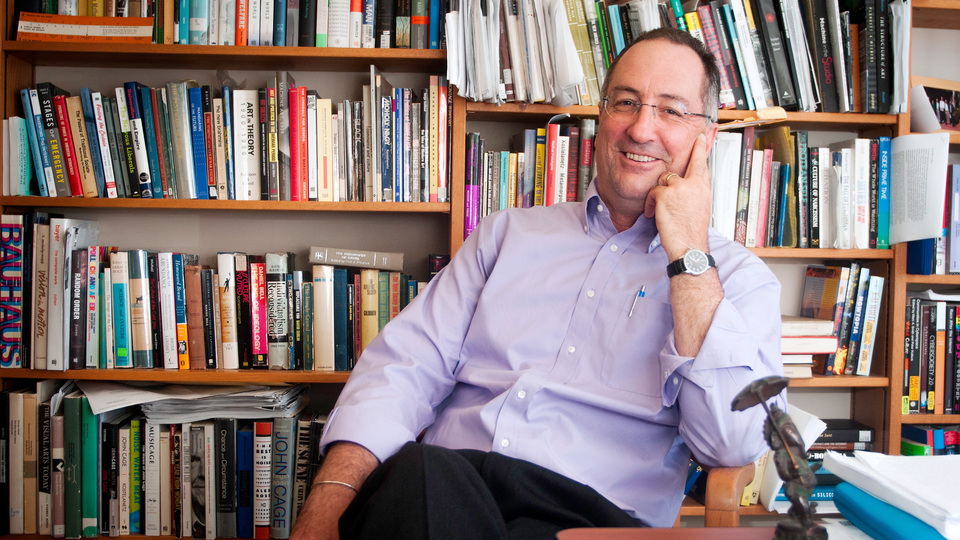
Fred Turner: “Machine Politics: The Rise of the Internet and a New Age of Authoritarianism”
In 1989, as Tim Berners-Lee dreamed up the World Wide Web, a deep faith in the democratizing power of decentralized communication ruled American life. Even Ronald Reagan, the Great Communicator of the Hollywood era, could be heard to proclaim that “The Goliath of totalitarianism will be brought down by the micro-chip.” Today of course, we know better. The question is, how did we go so far wrong? To try to answer that question, this talk returns to the 1940s and shows how our trust in decentralized communication was born in the fight against fascism during World War II. It then tracks that trust through the counterculture of the 1960s to the Silicon Valley of today. Along the way, it shows step-by-step how the twentieth-century American dream of a society of technology-equipped, expressive individuals became the foundation of today’s newly emboldened and highly individualized form of authoritarianism.
This event is part of Digital Alchemy, a series of performances and discussions exploring the intertwined intellectual and ideological histories of art and technology. For admission to the full series, become a member and pick up the Digital Alchemy All-Access Pass.
Fred Turner
Fred Turner is Harry and Norman Chandler Professor of Communication at Stanford University. His research explores the ways emerging media have shaped American life since World War II. He is the author of several books, including From Counterculture to Cyberculture: Stewart Brand, the Whole Earth Network, and the Rise of Digital Utopianism, and its prequel, The Democratic Surround: Multimedia and American Liberalism from World War II to the Psychedelic Sixties, both with the University of Chicago Press. He has been a LeBoff Distinguished Visiting Scholar at New York University, a Beaverbrook Visiting Scholar at McGill, a Fellow at the Digital Cultures Research Laboratory at Leuphana University, and twice a Fellow at the Center for Advanced Study in the Behavioral Sciences at Stanford. Before coming to Stanford, he worked for ten years as a journalist. He has written for newspapers and magazines ranging from the Boston Globe Sunday Magazine to Harper’s.



Digital Alchemy Talks at Design by Cosmic supported by Jean-Marc & Rebecca Jot.
Thank you to Design by Cosmic for hosting the Digital Alchemy Talks.
